According to the Centers for Disease Control (CDC), over 750,000 people have died since 1999 from a drug overdose, and two out of three of overdose fatalities in 2018 involved opioids. Without therapeutic support, many do not make it.
Getting off of opioids is a matter of life and death. Recovery can be painful and frightening, but is essential if you want to move forward towards a life of promise.
2020 has been an especially challenging year. The coronavirus pandemic has impacted every facet of our lives.
We do not leave the house. We work from home, go to school from home, and we do not see our friends and family.
These facts make the already difficult path of recovery even more difficult. You may be thinking: how can I possibly get the support I need to kick drugs when everyone is quarantined?
Recovery is possible, even in the age of COVID 19. Here are some tips to help you in this especially challenging time.
Telemedicine
Since the onset of the pandemic, telemedicine has become the logical alternative to visiting a doctor’s office. Instead of going to a place where you are exposed to infection from other patients, you can speak with a physician from the privacy of your own home. You do not have to come into close contact with anyone.
If you are a drug addict, telemedicine has certain advantages. You may have lowered immunity, so you need to be careful about crowded indoor spaces. You may also be concerned about anonymity, and prefer to seek recovery in the privacy of your own home.
Depending upon the extent of your dependency, telemedicine may be sufficient to get you started. Your remote doctor can prescribe medications like Suboxone over the telephone or through a Zoom consultation.
You can discuss with your doctor if you are feeling any bad side effects from the treatment, or if your withdrawal symptoms appear to be getting serious. In fact, telemedicine improves the waiting time for communicating with doctors, so you can usually speak to someone in less time than you could formerly get an in-person appointment!
Telemedicine may not be suitable for all opioid treatment. Some doctors may require that you get hospitalized for detox and withdrawal if they believe your symptoms are life-threatening.
Telemedicine also has the advantage of being less expensive than in-person doctor’s visits.
Telecounseling
In addition to medical doctors and addiction specialists, counselors and therapists are now offering remote consultations so you do not have to worry about going into someone’s office.
There are remote recovery programs where you will virtually meet with a counselor on a regular basis, in addition to getting tested with a mobile breathalyzer or at-home urine test. You may use an app to track your progress.
Many therapists agree that remote counseling can be as effective as in-person treatment.
In fact, this approach has brought even more patients in for treatment than the numbers who formerly sought help. In rural communities, for example, many addicts seeking treatment cannot access it because they lack transportation, cannot get time off of work, or have no one to take care of their children.
Telecounseling actually provides more access to recovery for many people who might not otherwise have tried to get clean.
Zoom Meetings
Isolation is one of the biggest problems with government-mandated quarantines. For an addict, being alone can be a strong trigger. The urge to use can become irresistible.
Some virtual rehab programs hold regular meetings over Zoom or other platforms so patients may communicate with each other, often with the guidance of an experienced mediator. Group therapy is considered an important part of treatment.
There are also free Zoom meetings available through Narcotics Anonymous. This program is based upon the 12 steps of Alcoholics Anonymous. Many addicts find these meetings critical to getting and staying sober, even years after their last high.
When the pandemic hit and many churches and other meeting spaces closed their doors, AA and NA took to Zoom to offer fellowship for recovering alcoholics and addicts.
Some recovering addicts find it easier to share their feelings in Zoom meetings. Thanks to the wonders of technology, you can call into a meeting being held in another state and not worry about running into a neighbor or co-worker and compromising your anonymity!
Others feel awkward sharing intimate details of their addiction struggle on a computer screen. It’s OK to just listen, and find ways to identify with the other people in the meeting.
The whole point is to realize you aren’t the only one who feels the way you do. There have been people before you who have been through what you are feeling and have come through the other end.
Often Zoom meetings will have a chat function, where you can contact the host of the meeting. Ask for phone numbers of potential sponsors, or of others in the meeting who seem to be the kind of people you could relate to.
Outdoor Meetings
Whether you are recovering from drug addiction or alcoholism, most programs recommend communicating with others in your shoes as a way to get clean and sober. Physicians also emphasize the importance of finding a community so you will not feel isolated and be tempted to relapse.
In some communities, NA has arranged for outdoor meetings so you can actually convene in-person and fight that terrible feeling of being alone by being in the company of people who get you.
Depending on the geographic region and climate where you live, you can find meetings that take place on beaches, in parks, or in church parking lots. Bring a chair and a mask!
Each meeting is autonomous, so there may be different rules for each group about whether people are required to wear masks or not. Some groups may make it mandatory.
Either way, finding an outdoor meeting is a great way to connect with other human beings and share your common struggles out in the fresh air.
Use the Phone
Narcotics Anonymous and other 12-step programs encourage their members to use the phone to connect with others. This is important during a pandemic and at any time.
Most addicts find a sponsor who helps them work through the steps and shares how they got clean. Many find it is comforting to check in with that person every day at the beginning of their recovery.
A sponsor is someone you call when you really want to use. They can talk you off the ledge. They can suggest ways to delay the urge until it passes.
These programs also recommend using the phone to reach out to other addicts. It is a useful tool to create a network of people you can turn to when you need them. Many recovered addicts find friendships that stay with them throughout the rest of their lives.
You should also use the phone to call addicts who are struggling. Even if you have been off of drugs for a long time, it is always helpful to remind yourself of what it used to be like by talking to someone new.
Helping others go through what you have been through is a powerful way to stay sober. Reaching out via telephone to others can help you as much as it helps them.
Meditation
Many rehab programs encourage mindfulness as a way to treat addiction.
Many addicts are extremely driven, creative people, whose minds can go into overdrive worrying about the future or thinking about the past. Mindfulness helps people stay in the present and appreciate what they have.
People try to achieve mindfulness through prayer, meditation, exercise, and other contemplative pursuits. Actually, the isolation of the pandemic is a great time to work on mindfulness!
Meditation has been found to actually change the way the mind works. It can soothe the anxiety and depression that often makes people want to take drugs. It can actually help reduce cravings.
People report that a daily meditation practice helps them get a better night’s sleep and achieve more peace in their relationships. As both lack of sleep and unhealthy relationships are big triggers for addicts, how wonderful that there is a tool that is free and easy to use to avoid those triggers!
Luckily, mediation and mindfulness do not require classes, groups, or in-person sessions. Although you can practice it in Zoom meetings, you can also pursue it on your own. Not only that, but it’s also free!
Support for Your Addiction to Opioids: It Is Available, Even in a Pandemic
Are you seeking support to kick your drug addiction? Are you finding it difficult to stop taking opioids in the pandemic, when everyone is so isolated and there is not much else to do? Is your life becoming unmanageable?
You aren’t alone. Many people like you are feeling the lure of opioids even more during this unpredictable time. Luckily, many professionals, as well as addicts who have found recovery, have innovated a variety of ways to stay clean virtually.
For more information about drug addiction and how to recover, check out our site.


